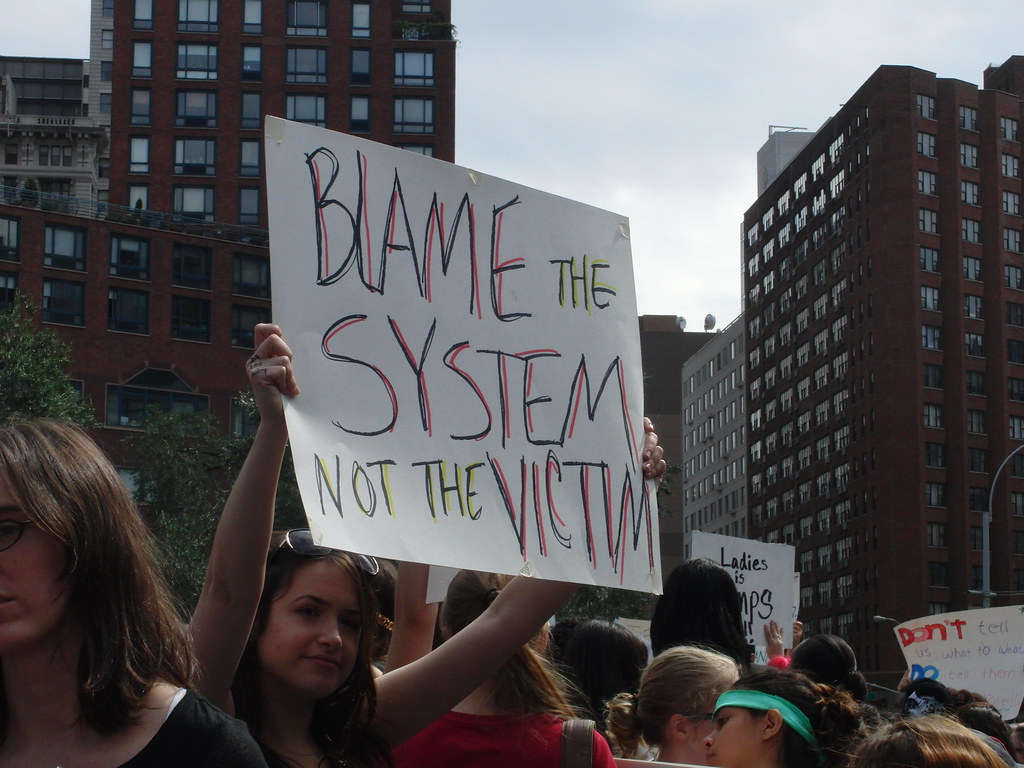
This group of activists joined the Climate Action March around the world on Sep. 8, 2018, asking for immediate action to reduce climate change. Photo Fabrice Florin, from flickr.
You would think that the concept of social norms wouldn’t have changed much from 100 years ago. Once the majority of people behaves one way or accepts something, everyone follows that. But it’s not that simple. Social norms in the modern age are changing, like how AI helps researchers model social norms. AI would help model how social interactions affect the overall society. And social norms may not seem like a hot topic in the news, but it is. The CEOs of PepsiCo and The Coca-Cola co., are both interested in making recycling the standard across the industry. The CEO of The Coca-Cola co said ““What I want is that every bottle be made out of recycled plastic. It’d just become the norm”. You can watch him in this video!
So this blog will be about modern social norms, and how we got big soda companies interested in social norms, like recycling.
In a world of increased social activism, how do we catch the stragglers who still aren’t interested? Those who don’t have environmental and social norms on their mind. One suggestion is to ask people what they want their future legacy to be. It makes sense, no one wants to be remembered as a scrooge.(like the CEOs of Pepsi and Coca Cola). But it used to be easier to get people to practice positive, environmental social norms. Order Without Social Norms: How Personal Norm Activation Can Protect the Environment says that, in an crowded society, people face situations that will harm the common good, but they feel like their choice won’t make a big difference(1102). This is one downside of growing urbanization and with more people moving to big cities. How do we get people to feel like they are part of a group where their choices matter?
Well, we have to be hold people accountable for their choices. Then they will feel like their choices make a difference. One environmental success story of the modern age, is that of household recycling. Dynamic relationships between social norms and pro-environmental behavior discovered that recycling boosts the probability that the household is personally upset about recycling, and this is increased if the household recycled two years previously. It works because once people start recycling, it’s more upsetting for them to stop. This reinforcement implies that societal actions encouraging change in either personal norms or recycling will support growth in the other. People also don’t want to leave a negative legacy of themselves, or feel like they aren’t recycling when everyone else is.

Once people start recycling it is hard for them to stop. Image from pxhere in CC0 public domain.
Once the majority of people start recycling, it pushes a social norm to the front of people’s minds Then those who lag behind will slowly start to conform to it. Conformity is usually talked about as a negative thing, but it can be good for environmental causes! You only need to get most people on board with your solutions. Saul McLeod, on Simple Psychology says that, “Social Norms are unwritten rules about how to behave. For example we expect students to arrive to lesson on time and complete their work.” People often conform to these unspoken rules. People need norms to guide and direct their behavior. Conforming is also a good way to get businesses on the positive side of social norms.
Even with recycling social norms tackled, there are still many grand challenges left to be solved for the next generation, like millennials and generation Z. For example, one National Geographic article points out, Ocean plastic is not as complicated as climate change. There are no ocean trash deniers, at least so far. To do something about it, we don’t have to remake our planet’s entire energy system. So in theory, this should be an easier social norm to change. We should focus on cleaning up the coasts rather than in the center of the oceans where plastic accumulates in so called ‘garbage patches’. This backs up the fact that coastal areas should be the most focused on changing their social norms, because it’s cheaper to reduce garbage in the ocean than it is to clean up what is left of it when it makes it to the middle of the ocean.
I am simplifying things a ton. There is a whole system which has influence on social norms. Thinking in Systems is a good reminder that almost everything is a system, most of which are very difficult to understand or change quickly. But remember to, “Listen to the wisdom of the system.”(194) But where do social norms fit into the system? Social norms are a relatively new idea. Law and Society Review, Volume 34, published in year 2000 says that, “The subject of social norms is once again hot.”(158) The Law and Society Review also says that people don’t know where to fit social norms into, which I think has changed since the year 2000.
“You’ll stop looking for who’s to blame; instead you’ll start asking, “What’s the system?” This opens up the idea that a system can cause its own behavior.” Rarely is the individual to blame.

Instead of blaming the individual, it’s better to work on changing the system. Photo from SlutWalk NYC in 2011. Photo from flickr.
Bibliography
Etzioni, A. (2000). Social norms: Internalization, persuasion, and history. Law Society Review 34(1), 157-178.
Huber, Viscusi, W., & Bell, J. (2018). Dynamic relationships between social norms and pro-environmental behavior: Evidence from household recycling. Behavioural Public Policy, 1-25. doi:10.1017/bpp.2017.13
Meadows, D. H. (2015). Thinking in Systems: A Primer (D. Wright, Ed.). White River Junction, VT: Chelsea Green Publishing.
Rochman, Chelsea (2016) Environ. Res. Lett. 11 041001
Staub, C. (2019, February 01). Coca-Cola: Recycled plastic can ‘become the norm’. Retrieved from https://resource-recycling.com/plastics/2019/01/30/coca-cola-recycled-plastic-can-become-the-norm/
Wiggers, K. (2019, February 12). AI helps researchers model the impact of social norms. https://venturebeat.com/2019/02/11/ai-helps-researchers-model-the-impact-of-social-norms/
Vandenbergh, M. P. (2005). Order without social norms: How personal norm activation can protect the environment. Northwestern University Law Review. 1101-1166.





0 Responses to “Social Norms in the Modern Age”